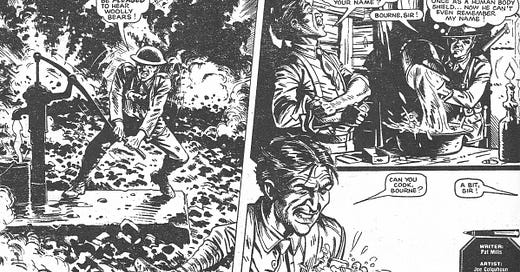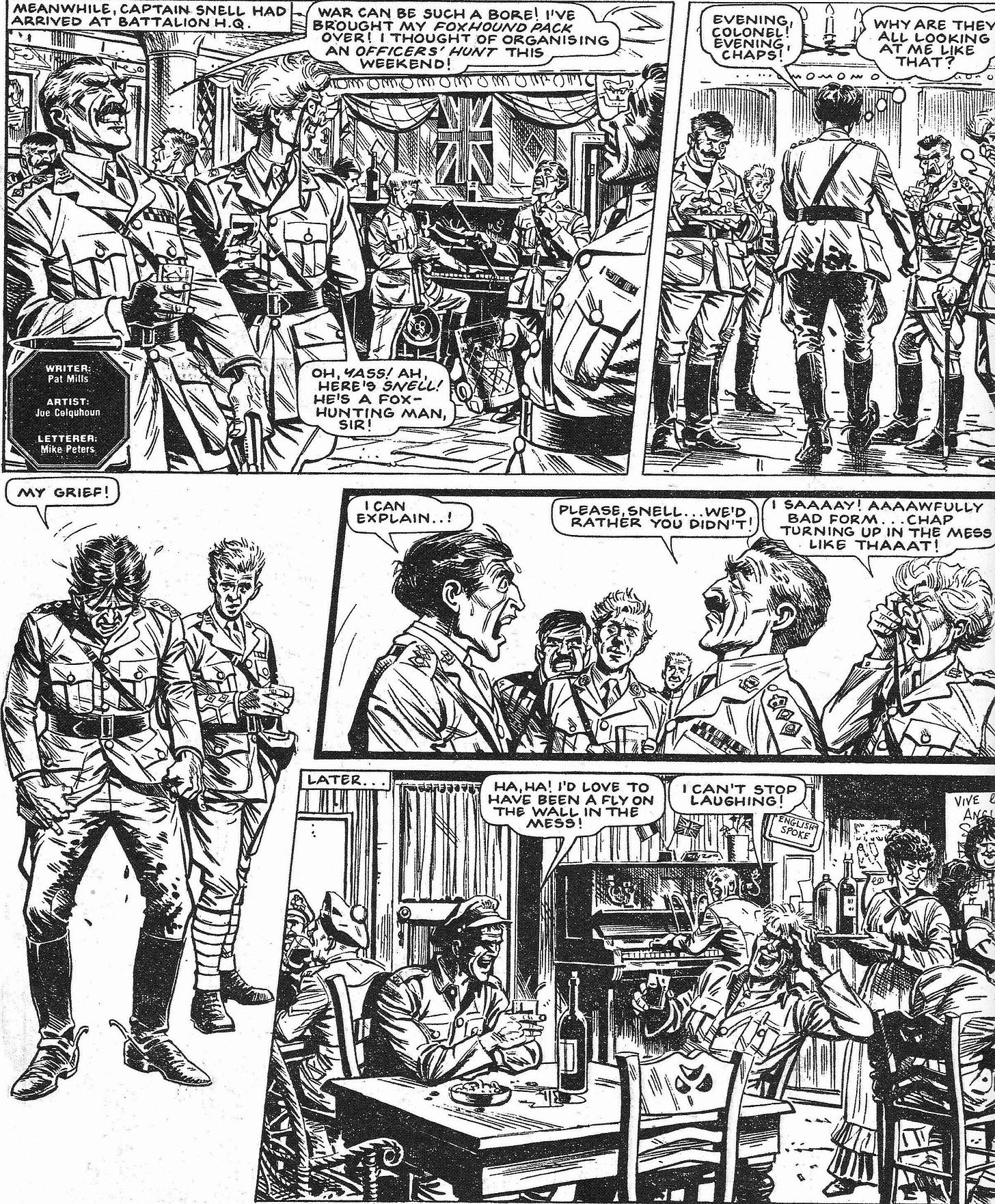Secret History: Charley's War Return to the Front
I can’t see Captain Snell or those officers who produced the Wipers Times enjoying ragtime, can you? It’s far too cool. Yet Charley Bourne and his mates proudly called themselves the Ragtime Infantry.
Welcome to my Secret History of Comics: my new book serialised on Substack. The first section was on Marshal Law: now it’s all about Charley’s War.
If you’re joining me for the first time, you can read the intro to the Secret History here, it’s available for everyone, and so is the intro to Charley’s War.
Every subsequent post has a free preview, but if you want access to my entire rant post, you’ll need to subscribe. Full access to ALL of my Secret History of Comics as I release them every week (plus other perks, check them out), will set you back just £5 per month or £50 per year, and it helps me to continue giving you my best writing. I even have a free seven-day trial on Iconoblast, so you can try it first.
Charley returns to the front at ‘Wipers’ the notorious Ypres salient. My history teacher at college actually said the ordinary Tommies were too thick to come up with the name ‘Wipers’! It’s true that officers produced the satirical Wipers Times, which I studied carefully when I started Charley, but which I found rather dull and too tedious to feature. Maybe I’m just not smart enough to appreciate its humour. I was similarly unimpressed by the rather dull TV version, dramatised by Ian Hislop, editor of Private Eye, and Nick Newman. All concerned would have claimed it was superior officer humour. It’s how elites like to see themselves, with ordinary soldiers as ‘salt of the earth’. They’re just not intelligent enough to be funny. I’ve actually heard an elite Cambridge Footlights comedian say words to that effect.
But the ordinary soldiers love of ragtime music challenges that elitism. Perhaps this ‘Devil’s music’ may have been just a bit too difficult for the officer class to get into. I say this with some confidence because:
Ragtime was beloved by Americans of all races and quickly became a pervasive style of popular music. This was not to the liking of the white establishment, in musical circles or other levels of society, who resented the style itself along with those who created it. Ragtime was also blamed for numerous problems: Its syncopated rhythm was blamed for irregular heartbeat by doctors, and opinion pieces in newspapers blamed it for street violence, domestic violence, rape, and “race mixing.” Like the regional folk style of blues music, ragtime was deemed the “Devil’s music,” and detractors said it would poison society to its core. The composer Edward Baxter Perry gave a famous 1918 critique of the style that reveals the contempt leveled at the new music forged by black Americans.
“Ragtime is syncopation gone mad and its victims can be treated successfully, in my opinion, like the dog with rabies, with a dose of lead,” Perry said. “Whether it is simply a passing phase of our decadent art culture or an infectious disease that has come to stay, like leprosy, time alone can tell.”
From the Santa Maria Sun.
In a 1913 interview published in the black newspaper New York Age, Scott Joplin asserted that there had been ‘ragtime music in America ever since the Negro race has been here, but the white people took no notice of it until about twenty years ago [in the 1890s].
Seattle Weekly sheds more light. Joe Schloss 2006:
This was an era in which D.W. Griffith’s racist fantasy “Birth of a Nation” defined narrative film, a time when black men were being lynched at a rate of about 100 per year and the right to vote was being rapidly taken away from African Americans across the country. It wasn’t an environment that celebrated joyful race mixing, and ragtime was a symbol for the influence of African American culture in the United States— especially for racist whites.
Ragtime, it was felt, was vulgar; its lyrics spoke with disdain about monogamous relationships and regular jobs. Ragtime evoked a world of easy sexuality and quick violence. These elements were always cartoonishly presented, but, then as now, angry critics rarely notice the humor in things.
I can’t see Captain Snell or those officers who produced the Wipers Times, or my old history teacher enjoying ragtime, can you? It’s far too cool. Yet Charley Bourne and his mates proudly called themselves the Ragtime Infantry.
Keep reading with a 7-day free trial
Subscribe to Iconoblast to keep reading this post and get 7 days of free access to the full post archives.





